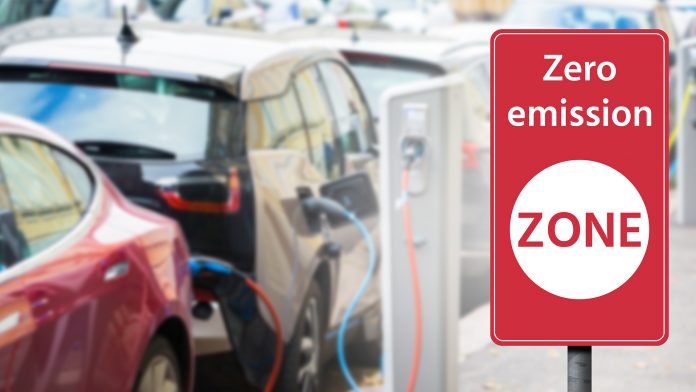The UK’s zero emission vehicle (ZEV) mandate has become law today, marking a significant milestone in the country’s transition to electric vehicles (EVs).
The ZEV mandate outlines an ambitious framework for the UK to completely phase out the sales of internal combustion engine (ICE) vehicles by 2035 and accelerate EV uptake nationwide.
The regulatory framework was developed in collaboration with industry and car manufacturers. The government says the ZEV mandate will ensure the certainty automakers have asked for to safeguard skilled British jobs.
The introduction follows a string of government-backed incentives to accelerate the UK’s electrification, with the country aiming to improve its charging infrastructure and buying schemes.
Anthony Browne, the UK’s Technology and Decarbonisation Minister, emphasised the importance of the regulations: “Alongside us having spent more than £2bn in the transition to electric vehicles, our zero emission vehicle mandate will further boost the economy and support manufacturers to safeguard skilled British jobs in the automotive industry.
“We are providing investment certainty for the charging sector to expand our charging network, which has already grown by 44% since this time last year. This will support the constantly growing number of EVs in the UK, which currently account for over 16% of the new UK car market.”
What will the ZEV mandate change for the UK?
In September of last year, Prime Minister Rishi Sunak made the controversial decision to delay the ban on new ICE vehicles from 2030 to 2035.
The government said this was to align the UK with other leading economies such as France, Germany, Canada, and Sweden, allowing motorists more time to make the switch to EVs and improve the country’s charging infrastructure.
To drive this transition, the ZEV mandate dictates the proportion of newly manufactured zero emission cars and vans that must be produced annually until 2030.
By 2030, 80% of new cars and 70% of new vans sold in Great Britain are mandated to be zero emission vehicles, with a full transition to 100% by 2035.
Government incentives to boost EV uptake
The new laws will spur economic growth by aiding households in transitioning to electric vehicles. This will bolster the second-hand market for EVs and promote wider charging infrastructure across the nation.
Government initiatives to reduce upfront and ongoing EV ownership expenses encompass grants of up to £2,500 for small vans and £5,000 for large vans until 2025.
Additionally, residents in flats can receive a £350 discount on home charging points. Recent data highlights a 41% rise in newly registered zero emission vehicles.
These incentives appear to be working, with registrations of zero emission vehicles rising by 41% for the first time.
The UK’s charging network is rapidly expanding, boasting over 50,000 public chargepoints—a 44% increase from last year.
This progress positions the country strongly toward its goal of achieving 300,000 chargepoints by 2030.
However, despite this progress, recent reports from the RAC suggest that the UK’s deployment of ultra-rapid chargers across critical motorways has not reached its targets.
With the introduction of the ZEV mandate, the UK will look to fill these gaps in the country’s EV framework.









